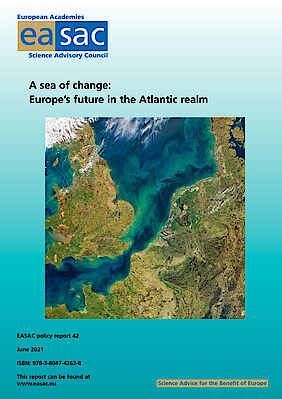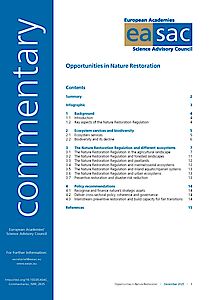Publications
A sea of change: Europe’s future in the Atlantic realm
Globally, the importance of managing the oceans in a more sustainable manner has been widely recognised in the United Nations Sustainable Development Goals (UN SDGs), the UN Decade of Ocean Science for Sustainable Development and elsewhere. In Europe the increased recognition of the importance of our oceans and seas is seen in the Blue Economy and in the Green Deal initiatives. However, such policies have to be set against the background that the historical state of flux in our oceans and seas is changing owing to global warming. This report focuses on the Europe’s future in the Atlantic realm and thus the Atlantic Ocean and the seas along Europe’s western coasts (excluding the Mediterranean and Black Seas).
The report describes the underlying processes and trends in the Atlantic, and the ways in which the state of the ocean – currents, winds, waves and ocean mixing – impact Europe’s climate, marine environment and resources. A dominant influence is the global thermohaline circulation which includes the Atlantic Ocean currents that transport heat and salt into northern latitudes via the Gulf Stream and North Atlantic Drift, with colder and denser waters returning south at depth; this is the Atlantic Meridional Overturning Circulation (AMOC). Superimposed on this are patterns of variability in both the atmosphere (the North Atlantic Oscillation) and the ocean (the Atlantic Multidecadal Variability). Palaeoclimatic records show that changes in these basic processes may have substantial local and global effects on climate and on marine and coastal ecosystems.

































